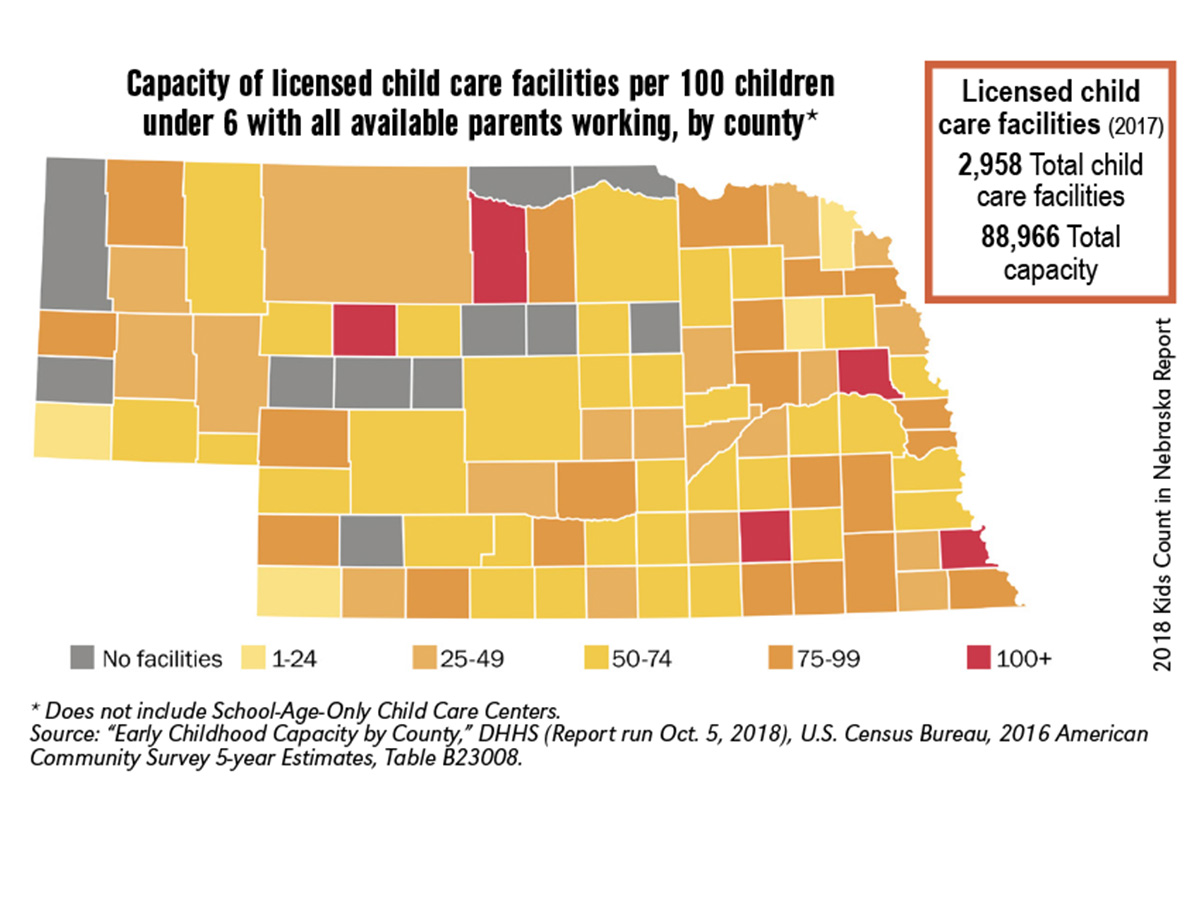
By Jaci Foged, Extension Educator, Lancaster County & Suzanne Schneider, Early Childhood Coordinator of Collaboration and Family Engagement, Lincoln Office for Early Childhood
“The most important people in a child’s life are the child’s parents and teachers. That means parents and teachers are the most important people in the world.”
—Fred Rodgers
EARLY CARE MATTERS TO CHILDREN
The first 1,000 days of a child’s life have a profound impact on their brain development. Research shows 90% of brain development occurs before age 5. Early relationships, environments and experiences affect all aspects of a child’s development.
In Nebraska, 77.3% of children ages 0–18 have all available parents in the workforce and 75% of children ages 0–6 have all available parents in the workforce. Without a doubt, Nebraskans are hard workers — but they are also family oriented.
This high percentage of parents in the workforce confirms that young children require some form of non-parental early child care. A high-quality early-child care workforce is vital to care for our youngest population while their parents are working.
A SMART INVESTMENT IN NEBRASKA’S FUTURE
The 2018 Kids Count in Nebraska Report states that well-educated children are more likely to become successful adults. Access to high-quality early childhood and pre-kindergarten programs provide an important foundation for children as they move through their school years and into adulthood. Well-educated children grow up to have better job satisfaction, earn higher income, lower divorce rates and lower crime rates. By ensuring that all children have access to high-quality educational opportunities, we are investing in the future of Nebraska.
The cost of child care continues to rise and that cost averages more than $12,0001 per year, per child. In Nebraska, nearly 80% of children ages 0–5 are in some form of paid child care. In 2016, there were 132,809 children under age 5 living in Nebraska. A total of 20,277 of these children lived in Lancaster County.
The Heckman Equation has found nationally the annual return on investment for each dollar spent on high-quality preschool programs for children living in poverty is 7–10%. Investment returns increase to 13% annually when early childhood programs span birth through age 5.
Nebraska has 2,985 licensed child care facilities and 337 of those are currently participating in Step Up To Quality, which is Nebraska’s quality rating and improvement scale. Child care centers can participate in Step Up To Quality at no cost. Participation gives licensed child care providers (homes and centers) access to coaching and resources to support them as they work to take the quality of their program to the next level. Step 5 is the highest rating.
Creating equal opportunities for all children to learn and grow in their early years — regardless of race, gender or socioeconomic background — is vital to a community’s prosperity. Access to high-quality early childhood experiences enables children to be kindergarten-ready and to develop into successful community citizens.
1. Child Care Aware, Child Care in America: 2017 Fact Sheets
FOR MORE INFORMATION
Nebraska Extension has information about choosing quality child care at https://child.unl.edu/quality-child-care.
(See related article LINCOLN LITTLES in this e-newsletter)